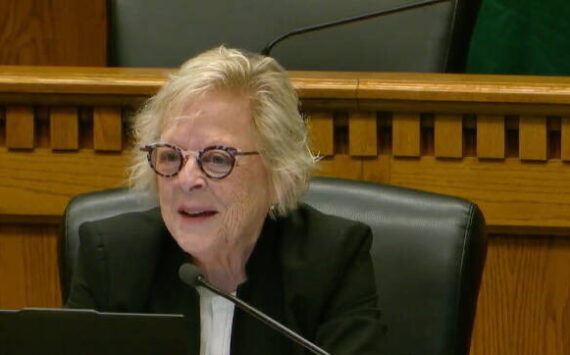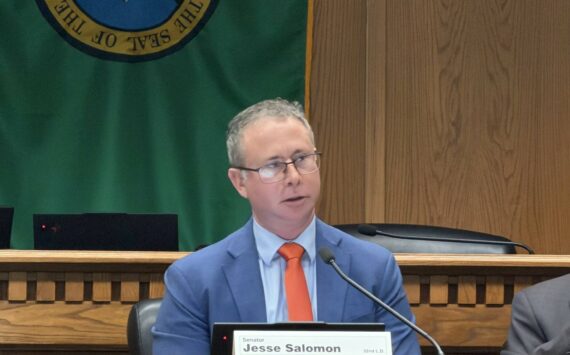The first item on every Washington voter’s ballot is a proposal to add a few lines to the state constitution that would change how billions of taxpayer dollars are managed.
Senate Joint Resolution 8201 seeks to let the state make stock market investments with payroll taxes collected for its long-term care program, known as WA Cares. Any earnings would have to be used solely for the program’s beneficiaries.
If approved Tuesday, the Washington State Investment Board would be legally able to handle the program’s assets in a similar manner as it does pension and retirement funds.
This will allow for the tax dollars to be invested in a “safe and risk averse way” while producing greater returns for the program, said Heather Weiner of the Approve 8201 campaign in a recent debate at the University of Washington.
She said that since 1992, annual returns for Washington’s pension funds have averaged 8.9%, which is several percentage points higher than investments in government bonds. In the long run that would translate to a lot more dollars for the program.
“This doesn’t mean day trading, taking big risks on a stock market,” she said. “This means smart long-term [investing] so that in 50 years when people in this audience today will need long term care, that fund will be there for you.”
State Sen. Bob Hasegawa, D-Tukwila, opposes the measure.
“Our fiduciary responsibility is to the people,” he told the debate audience. “No one is going to know when the economy or stock market crashes. So, this vote is about whether we keep prudent fiscal management policies of our tax dollars and retain those constitutional protections.”
The Legislature voted earlier this year to put the constitutional amendment on the ballot. It passed by margins of 86-9 in the House and 42-7 in the Senate and will become law if more than 50% of voters approve it on Tuesday.
WA Cares, created by a 2019 law, is funded with a 0.58% tax on the paychecks of most workers in Washington. Beginning in July 2026, those who qualify can begin accessing the benefit, a lifetime amount of $36,500 — a sum that is set to rise in future years to account for inflation. A pilot program will start in January in a handful of counties.
Collections of the payroll tax began in mid-2023 and more than $2.5 billion was banked in the Long Term Services and Supports Trust Account as of summer.
The state constitution generally bars investing public money in the stock of private companies. That means state and local governments are limited to fixed-income securities like government bonds, treasury bills and certificates of deposit that are less risky but typically deliver lower rates of return. The WA Cares account is now subject to this limitation.
If the constitutional amendment is approved, the long-term service account would be added to the list of funds exempt from that prohibition alongside the state’s pension and retirement funds. The state investment board could then decide if it wants to invest in private equity funds and buy stock of private companies, or not.
In 2020, voters defeated a similar measure. It passed in only three Washington counties — King, Jefferson and Whatcom.
Weiner said this year’s proposal, unlike the one in 2020, mandates money made from investments must go into the WA Cares Fund. The intent is to prevent lawmakers from tapping those dollars for other budget needs.
Democratic Gov. Bob Ferguson and Senate Minority Leader John Braun, R-Centralia, back the ballot measure. So too do the Washington State Nurses Association, Washington State Council of Fire Fighters, AARP, and Washington Health Care Association.
Service Employees International Union 775 is underwriting the campaign. The union, which represents 55,000 long-term care workers in Washington, Montana and Alaska, had reported raising and spending $2.5 million as of Friday. That is five times more than it spent in a losing effort in 2020.
Hasegawa said there is no funded opposition campaign, just like the last ballot fight. He and three Republican state lawmakers penned the voters’ pamphlet statement opposing the measure.
Statements from both sides, along with an explanation of the measure prepared by the attorney general’s office, can be found on the secretary of state website.
Washington State Standard is part of States Newsroom, a nonprofit news network supported by grants and a coalition of donors as a 501c(3) public charity. Washington State Standard maintains editorial independence. Contact Editor Bill Lucia for questions: info@washingtonstatestandard.com. Follow Washington State Standard on Facebook and Twitter.





